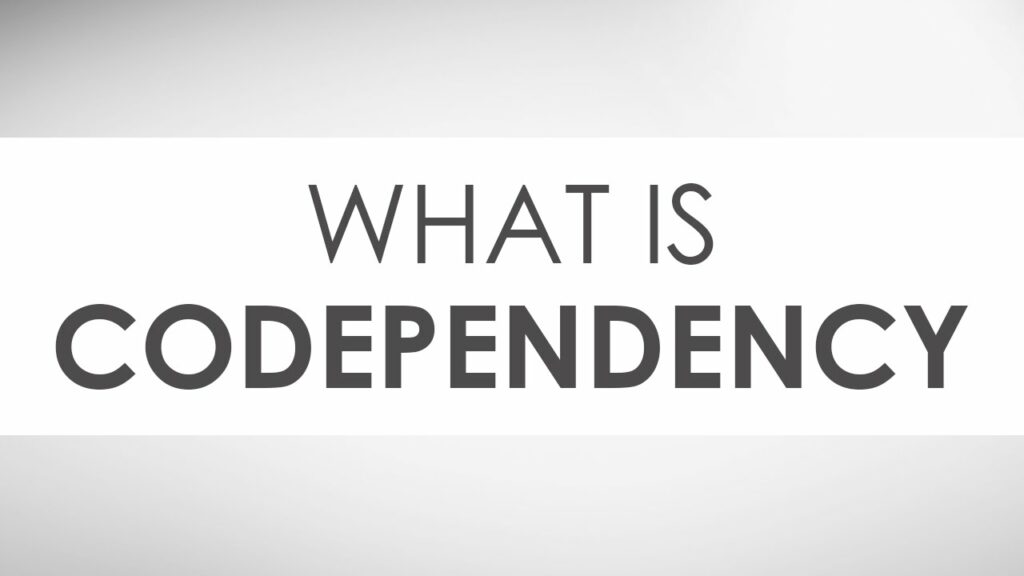Codependency is a type of relationship addiction. It is characterized by a need to be in a relationship, and a dependency on the other person for approval and self-worth. People who are codependent often find themselves in relationships with people who are emotionally unavailable, abusive, or addicted to drugs or alcohol. If you are struggling with codependency, it is important to recognize the signs and get help. In this blog post, we will discuss what codependency is, how to recognize it, and how to overcome it.
Contents
What Is Codependency?
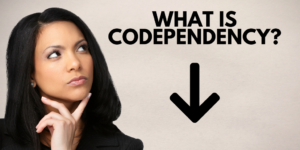 Codependency is a term used to describe a person who has let another person’s behavior affect him or her, and is obsessed with controlling that person’s behavior. This behavior also includes obsessing over the other person’s feelings to the point where you lose sight of your own. Codependents often have low self-esteem and are very insecure people.
Codependency is a term used to describe a person who has let another person’s behavior affect him or her, and is obsessed with controlling that person’s behavior. This behavior also includes obsessing over the other person’s feelings to the point where you lose sight of your own. Codependents often have low self-esteem and are very insecure people.
Sometimes, codependency can be mistaken for love or caring, but in reality, they are not the same. A person who is truly loving and caring will want only what’s best for their significant other; a codependent wants to control that person.
Codependents have very unhealthy relationships with people because of their need to try to fix others. It is often seen as them being “co-alcoholics” or having some type of addiction themselves when this isn’t always true at all. Some co-dependent relationships involve alcohol abuse, drug addiction, physical abuse, sexual issues, etc., but many are not like this at all. Someone may be codependent on another person just based on personality traits such as low self-esteem, insecurity, and need for approval.
Signs of Codependency

There are many signs of codependency, but most involve a loss of identity. Some of the other signs are:
Difficulty In Maintaining Relationships
Sometimes codependent people stay in unhealthy relationships because they’re afraid to be alone. Other times, it’s that the thought of leaving is just too painful or scary. They may also find themselves frequently involved with controlling or abusive partners even though they know it isn’t a healthy relationship for them to be in.
Lack Of Self-Esteem And Confidence
Codependents usually have low self-esteem and little confidence in their ability to do things on their own, so they tend to let others make decisions for them (instead of making choices based on what’s best for them).
They might also have trouble expressing their emotions or needs out loud—even if something doesn’t feel right inside—because they don’t want others to think less of them.
Extreme Behavior
While there are many signs of codependency, one of the most common is extreme behavior. This includes things like being overly responsible for others or having poor boundaries with friends and family members (letting them take advantage).
For example, You might find yourself constantly trying to fix other people’s problems while ignoring your own needs—which can lead you down a dangerous path where you lose sight of who really matters most in life (hint: it’s not anyone else!).
Being Pleaser And Rescuer
Codependent people often put others’ needs before their own. They may feel powerless when someone they care about suffers from addiction or mental illness, for example. So they do everything in their power to try and help—even if it means neglecting their own health and happiness in the process.
Difficulty In Identifying Feelings
 Sometimes codependent people have trouble identifying their feelings. This can be because they’ve been conditioned to bury their emotions for so long that they don’t even know what they’re feeling anymore. Or, alternatively, they might feel everything too intensely and struggle to find a healthy outlet for those emotions. It also makes it hard for them to express themselves effectively when they’re not sure what’s going on inside.
Sometimes codependent people have trouble identifying their feelings. This can be because they’ve been conditioned to bury their emotions for so long that they don’t even know what they’re feeling anymore. Or, alternatively, they might feel everything too intensely and struggle to find a healthy outlet for those emotions. It also makes it hard for them to express themselves effectively when they’re not sure what’s going on inside.
Lack of Trust
sometimes there are trust issues with codependent people because they have been hurt by their parents or lovers in the past, so now they don’t trust anyone new. It may also be difficult for them to trust themselves, which can lead to a lot of inner turmoil and self- sabotage.
Fear Abandonment
Codependents often fear abandonment and rejection, even when there is no reason to think that will happen. They might avoid social situations or refuse invitations from friends out of concern about what others might think if someone didn’t like them back. This can lead them into unhealthy relationships where they feel like they’re constantly walking on eggshells just trying not to upset their partner (even though deep down it’s probably just an insecurity issue).
Reasons of Codependency
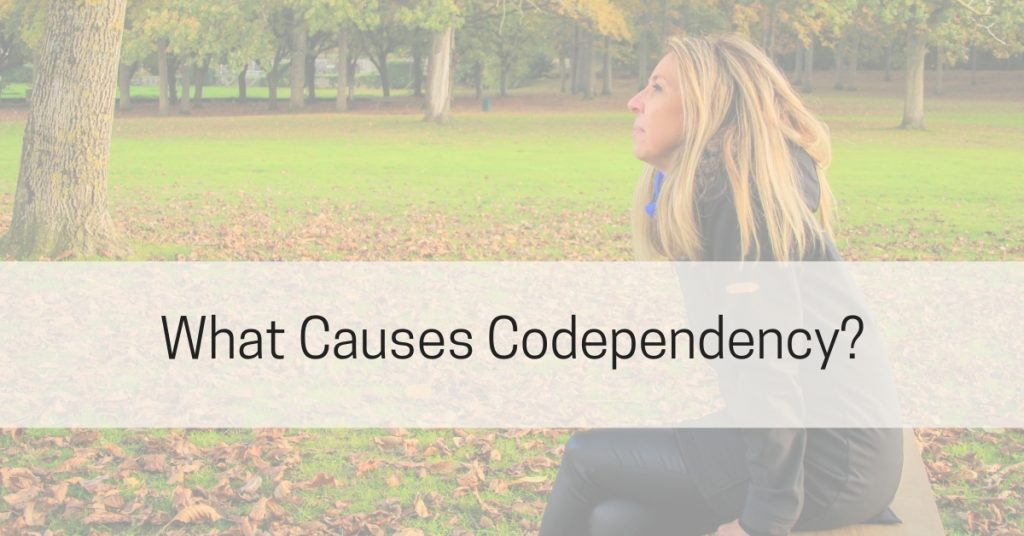
There are many reasons for codependency. Some of these are:
Dysfunctional Family Dynamics
Sometimes there is a dysfunctional family dynamic where one or both parents are addicts. The child may grow up feeling responsible for their parent’s happiness and well-being. They may also feel like they have to take care of their parent in order to make them happy. This can lead to the child becoming codependent as an adult. It can also lead to them becoming an addict themselves.
Abusive Relationships
 Codependency can also develop in abusive relationships. The person may stay in the relationship because they feel like they need to take care of their partner. They may also feel like they can’t survive without them. This can lead to a lot of emotional and psychological abuse. Sometimes there is physical abuse as well.
Codependency can also develop in abusive relationships. The person may stay in the relationship because they feel like they need to take care of their partner. They may also feel like they can’t survive without them. This can lead to a lot of emotional and psychological abuse. Sometimes there is physical abuse as well.
Lack of Self-Confidence
Sometimes codependency happens because a person lacks self-confidence. They might feel like they are not good enough, and need to be with someone else in order to be happy or successful. This can lead them into toxic relationships where the partner is emotionally abusive towards them, but they stay in the relationship because it makes them feel better about themselves. It’s easier for these people if their partner treats them poorly, so that way they don’t have high expectations from themselves and will never disappoint anyone around them.
Trauma
Another reason for codependency can be trauma or neglect. If someone doesn’t have a stable caregiver growing up, they may not learn how to trust other people or how to depend on others emotionally. This can make it difficult for them to form healthy relationships as adults. It can also lead to them being codependent on others. Sometimes people who have been through a traumatic experience will rely on their partner to take care of them emotionally, which can be unhealthy for both parties involved.
Emotional Neglect

Sometimes there are cases of codependency where one or both parents were emotionally neglectful. The child may not have received the emotional support they needed as a youngster, so they will look to their partner to fill that role in adulthood. They may also feel like they need to take care of their partner in order to make up for what they didn’t get from their parents. It may also lead them to seek out emotionally unavailable partners so that they won’t have high expectations of themselves.
Genetics
Sometimes genealogy can play a role in codependency. If one or both parents are addicts, there is a higher chance that the child will become codependent as well. This is because they may learn addictive behaviors from their parents and carry them into their own relationships. It’s also possible for children of alcoholics to become codependent, even if neither parent is an addict. This is because they often have to take care of their alcoholic parent while growing up, which can lead to emotional neglect.
Negative Impacts of Codependency

There are many negative impacts of codependency. Some of these are:
Communication Gap
Sometimes there are communication gaps in codependent relationships. This is because the codependent person often sacrifices their own wants, needs, and feelings in order to take care of the other person. As a result, they may not feel comfortable communicating openly and honestly about what they are thinking or feeling. It may be difficult for them to share their thoughts and feelings honestly, which can lead to misunderstandings and resentment.
Lack of Autonomy
Codependents often have a hard time establishing and maintaining boundaries. They may feel like they need to do everything for the other person, and they may have difficulty saying no. This can result in a lack of autonomy and independence, which can be frustrating and restrictive. Sometimes there are also power struggles in codependent relationships, as each person tries to assert their own autonomy.
Negative Emotions
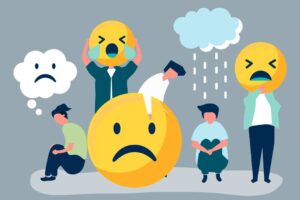 Codependents often experience a lot of negative emotions such as guilt, shame, anxiety, and depression. This is because they are constantly putting the needs of others before their own, and they may feel like they are not good enough. All of this can be very overwhelming and exhausting. It may also be difficult for codependents to enjoy themselves, as they are always focused on taking care of others.
Codependents often experience a lot of negative emotions such as guilt, shame, anxiety, and depression. This is because they are constantly putting the needs of others before their own, and they may feel like they are not good enough. All of this can be very overwhelming and exhausting. It may also be difficult for codependents to enjoy themselves, as they are always focused on taking care of others.
Feeling Overwhelmed
Codependents often feel overwhelmed by their responsibilities in the relationship. This is because they are taking on too much responsibility, and they are not able to delegate tasks effectively. As a result, they may feel constantly stressed out and exhausted. It may also be difficult for them to relax and enjoy themselves, as they are always worried about the other person.
Emotional Dependence
Codependents rely heavily on others for emotional support and validation. They often feel like their self-worth depends on whether or not someone else is happy with them, so they are constantly seeking approval from others. This can be frustrating and difficult to deal with, especially if the other person is demanding or critical of them all the time.
Feeling Responsible
Codependents may also struggle with feelings of responsibility in relationships. They often feel responsible for other people’s problems and mistakes, which may lead to guilt and shame when things go wrong. It can also be very stressful having to take care of everyone else’s needs while ignoring their own wants and needs in life.”
Codependency Treatment Options

There are many treatment options available for codependency. Some of the most common include:
Therapy
Therapy is often a very effective treatment option for codependency. It can provide a safe space for you to explore your thoughts and feelings, and it can help you learn how to establish healthy boundaries and communicate effectively.
Support Groups
Support groups can also be helpful for codependency treatment. They provide a safe and supportive environment where you can share your experiences with other people who are going through the same thing. This can be helpful in terms of understanding your condition better, and it can also help you develop support networks outside of your family and friends.
Medication
If you experience severe symptoms of codependency, your doctor may prescribe medication to help you manage them. There are a number of different medications that can be effective for codependency, so it is important to talk to your doctor about what might work best for you.”
How To Overcome Codependency?
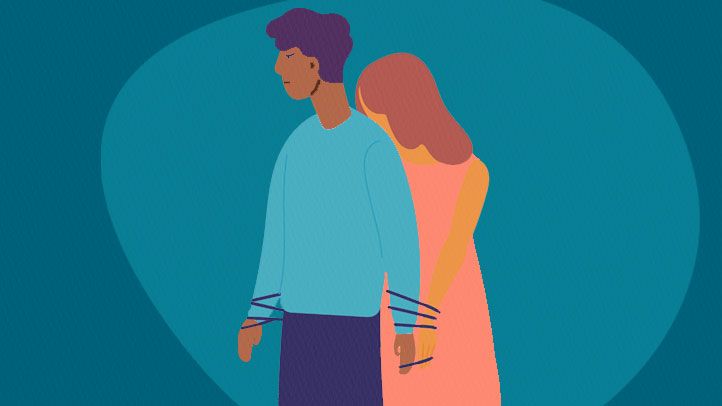
There are many methods to overcome codependency. The first step is to identify if you are codependent and what caused it. Once you know the cause, then you can start to address the problem. Some other strategies are:
Self-Help Books
Sometimes, you do not need professional help. Self-help books can be a great start to understanding your codependency and how to overcome it. There can be a lot of personal growth by reading and applying the principles in these books to your own life.
Life Coaching
A life coach is someone who listens, motivates, and helps people achieve their goals in life. A good coach can help you identify the cause of your codependency and give you strategies on how to tackle it. It may be a good idea to get help from a professional coach to overcome your codependency.
Beware of Triggers
Sometimes, people in your life may trigger your codependent behaviors. It is important to be aware of these people and what they do that causes you to react in a codependent way. Once you know, you can avoid them or deal with the situation differently. It may also be a good idea to talk with them about your codependency and how they trigger it.
Set Boundaries
Learning more about boundaries will help you know when someone crosses the line into unhealthy territory. It may also be helpful for you to set new boundaries in relationships where there were none before now that you have identified what yours are. If people respect them, great! If not, then it is time to reevaluate that relationship.
Determine Your Feelings
 Codependent people tend to act and react before really thinking about how they are feeling in the situation. It is important for you to slow down and check-in with yourself when something happens. What do I need right now? How am I feeling? Why did this make me feel like this? Then, work on communicating those feelings honestly so others know who you are as a person and what drives your behavior or reactions. You will be surprised at how much more understanding others can become of your emotions once they understand where they come from within yourself.
Codependent people tend to act and react before really thinking about how they are feeling in the situation. It is important for you to slow down and check-in with yourself when something happens. What do I need right now? How am I feeling? Why did this make me feel like this? Then, work on communicating those feelings honestly so others know who you are as a person and what drives your behavior or reactions. You will be surprised at how much more understanding others can become of your emotions once they understand where they come from within yourself.
Practice Self-Compassion
Sometimes there are times in life when we are hurt and need some time alone. It is okay to take that space for yourself. You do not always have to be thinking about others or what they want from you at the expense of your own well-being! Practicing self-compassion will help with this because it teaches us how important it is as human beings that we take care of ourselves before anyone else can do so effectively on our behalf if necessary too much codependency. It is not selfish to love and take care of yourself!
Maintain Good Diet
Sometimes your diet can affect the way you feel, especially if it is lacking certain nutrients. Eat healthy foods that give your body what needs so you have better energy levels and overall health benefits! This will reduce stress which may help with codependency issues because they tend to be linked together closely sometimes too much codependency.
Be Mindful of Others’ Needs
 Sometimes there are times in life when we are hurt and need some time alone. It is okay to take that space for yourself. You do not always have to be thinking about others or what they want from you at the expense of your own well-being! Practicing self-compassion will help with this because it teaches us how important it is as human beings that we take care of ourselves before anyone else can do so effectively on our behalf if necessary too much codependency. It is not selfish to love and take care of yourself!
Sometimes there are times in life when we are hurt and need some time alone. It is okay to take that space for yourself. You do not always have to be thinking about others or what they want from you at the expense of your own well-being! Practicing self-compassion will help with this because it teaches us how important it is as human beings that we take care of ourselves before anyone else can do so effectively on our behalf if necessary too much codependency. It is not selfish to love and take care of yourself!
Exercise Regularly
Exercising may help with codependency because it releases endorphins, which make you feel good. When you are feeling good, it is easier to be in control of your thoughts and emotions instead of them controlling you! Exercise can also help clear your headspace, so you are not as overwhelmed by situations that may trigger your codependent behaviors.
Talk About It
 If you are struggling with codependency, talking about it openly can be really helpful. This allows others to understand what you are going through and how they can best support you. It also gives you a space to vent and process your feelings without judgment. Talking things out can definitely help lighten the load. It can also lead to gaining new perspectives on situations that might have been difficult before now!
If you are struggling with codependency, talking about it openly can be really helpful. This allows others to understand what you are going through and how they can best support you. It also gives you a space to vent and process your feelings without judgment. Talking things out can definitely help lighten the load. It can also lead to gaining new perspectives on situations that might have been difficult before now!
Take Time For Yourself
Taking time out of each day just for yourself is so important. It allows you to decompress and refill your cup. When we are depleted, it becomes much harder to take care of others or even ourselves to too much codependency. This does not mean you need hours alone every single day in order to recharge; sometimes just a few minutes of quiet can make all the difference when trying not to let your emotions get ahead of themselves due to too much codependency.
Love Yourself
Some of the best advice for overcoming codependency is to start with loving yourself. This may be difficult at first, but it is so important. When you love and accept yourself just as you are, it becomes easier to make healthier decisions for yourself in all areas of your life. You will no longer feel the need to rely on others excessively to fill any voids because you will have already done that for yourself.
How To Help Someone With Codependency?

There are many ways that one can help a person with codependency. Some of these are:
Talk To Them About It
Sometimes, the best way to help someone is to talk to them about it. This can be a difficult conversation, but it may be what the person needs in order to start getting help. It may be hard to talk to them about it because they may not want to talk about it at all. They might not even realize that what is happening is a problem. If you don’t know how to start the conversation, try asking them questions like:
Suggest Professional Help
If talking doesn’t seem to be helping, or if the person is not willing to talk, then suggesting professional help may be a good next step. There are many therapists who specialize in codependency and can provide the necessary support and guidance. Try looking for a therapist who is specifically trained in codependency and addiction.
Remove Yourself From Situation
If the person with codependency is someone that you are close to, it may be difficult to remove yourself from the situation. However, if you are able to do so, it may be the best thing for you. It can be helpful to distance yourself from the person in order to focus on your own healing. This doesn’t mean that you have to cut them out of your life completely, but it might mean taking a break from being too close or spending time apart.
Encourage Them To Get Support From Others
Codependents often find it difficult to ask for help from others. However, encouragement from friends and family can go a long way in helping them get better. Make sure that you provide positive reinforcement and let them know that you care about them. You can also offer to go with them to therapy or meetings if they feel more comfortable that way.
Help Them Learn To Love And Accept Themselves
One of the biggest problems that people with codependency have is their inability to love and accept themselves as they are. Helping them learn how to do this can go a long way in helping them get better. This may include learning how to say “no” more often or not being afraid of rejection from others. It can also involve setting healthy boundaries and learning to forgive themselves.
Conclusion
Codependency is a trait that most people have to some extent, but it becomes problematic when we become so dependent on others that we lose our identities and begin to prioritize other people’s needs over our own. A codependent person may feel like they are in control of their life, but this is just an illusion they have created because they fear the unknown. They rely heavily on the opinions and validation of others for personal security.
A big part of overcoming codependency is recognizing its negative effects and learning how to be self-reliant again by relying less on external sources for your happiness or sense of worthiness., “In order to break free from enabling behaviors one must first stop blaming themselves.” This can be done through self-compassion exercises such as mindfulness and meditation. You can also contact us for more related information about it.
A Word From Therapy Mantra
Your mental health — Your psychological, emotional, and social well-being — has an impact on every aspect of your life. Positive mental health essentially allows you to effectively deal with life’s everyday challenges.
At TherapyMantra, we have a team of therapists who provide affordable online therapy to assist you with issues such as depression, anxiety, stress, workplace Issues, addiction, relationship, OCD, LGBTQ, and PTSD. You can book a free therapy or download our free Android or iOS app.
